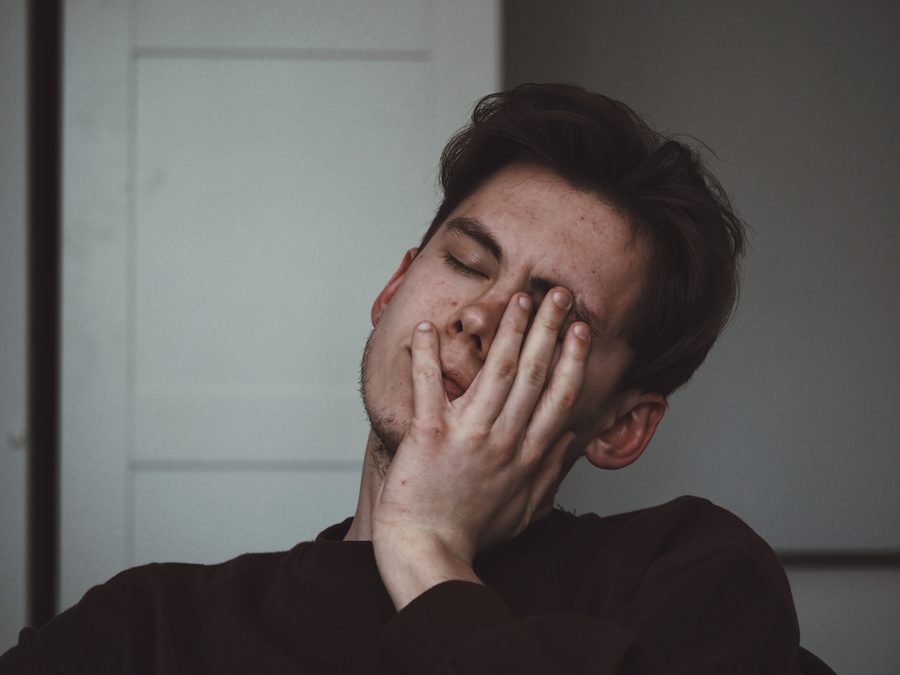Everyone experiences loss in their lives. We can’t escape it, and it doesn’t target or exclude men or women. Loss leads to grief, and that’s normal and healthy. The grieving process is important for healing, understanding, and accepting loss.
Unfortunately, we still live in a society where so many men feel as though they have to hide their grief during times of loss, potentially leading to even bigger mental health issues. The reality of hidden male grief is that grief isn’t a choice—everyone feels it. But, many men don’t have a healthy way to express it, creating problems in the way they express emotions.
Let’s take a closer look at how hiding your grief, as a man, can lead to much bigger problems later.
Why Do Men Hide Their Grief?
Not all men feel the need to suppress their feelings of grief, of course. However, it’s still a common issue, thanks to the ongoing stigma surrounding men’s mental health issues. Many men still believe that expressing their emotions makes them weak or fragile somehow. That can be especially true when they’re in the company of other men—including male family members.
Men have lived under pressure for a very long time. While many people are becoming more open and accepting of the emotional issues men face, the stigmas and stereotypes still linger. So many men have been brought up with the idea that they can’t show any weaknesses.
Once upon a time, that attitude may have been used for survival. In the 21st century, however, it’s nothing but suppression. When it comes to grief, trying to hide your emotions can have lasting negative consequences.
The Risks of Suppressing Grief
If you feel like you can’t be open with your emotions regarding loss, you might feel the need to push them down or hide them away from the rest of the world. You might even be pretty good at putting on a mask and getting everyone to believe you’re okay.
Unfortunately, pushing down your grief can lead to physical and mental health issues. Physically, you can suffer from ulcers, digestive issues, headaches and muscle pains, and even a weakened immune system.
Emotionally, suppressing your grief can cause extreme depression. You might start to struggle with self-destructive or reckless behaviors, or even suicidal thoughts.
The stages of grief are in place for a reason. While everyone works through them at their own pace, it’s a process that promotes healing. When you stop before you start, you might never fully be able to work through your emotions and healthily move through your grief.
A Societal Issue
Another big problem with hidden male grief is that there’s a severe lack of resources available for men. It can be difficult to find male support groups or professionals who specifically advertise men’s mental health issues.
However, there are more resources today than in decades past. Stigmas are slowly fading, just not as quickly as they should be.
It’s likely the stereotypes surrounding men and emotional issues won’t go away any time soon thanks to advertisements and media representations of what it means to be a “real man.” But you can fight back against those exaggerated and often false depictions.
You can work to break the cycle in your own life and within your social circle.
If you’ve experienced loss of any kind and you’re struggling with the grieving process, don’t hesitate to reach out for help. Hiding your grief will end up doing more harm than good, and you don’t want to turn to unhealthy ways of coping. Asking for help to get through it doesn’t make you weak—it shows great strength.
To find out more about how therapy can help you with grief, please contact us at Mindworthy Therapy
Home
Services
Insurance
Therapists
Contact
Mindworthy Therapy
info@
mindworthytherapy.com
847-497-5730
1933 N. Meacham Rd.
Suite 200
Schaumburg, IL 60173

Designed By:
Farm it Out! Design, Inc.

